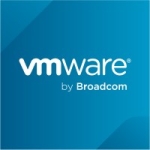What is our primary use case?
We primarily use the solution for the data warehouse.
What is most valuable?
The solution offers everything you'd find on Azure or AWS. It has a lot of industry-standard features and capabilities.
The product has excellent autoscaling. We can actually compute and scale-out at the same time without having to depend on other tools. You can do it on the fly, or within queries, etc.
The Visual Copy Cloning is definitely one feature that everyone looks forward to due to the fact that it gives you regular backups.
The solution offers a very good time travel function that allows you to travel back in time to before your systems we corrupted. You can go back into your history and grab the last backup before corruption so that you regain almost everything you need. It gives you 90 days to fetch the data back if you need to. It's better than Azure options.
What needs improvement?
We've spoken with Snowflake about the fact that there are a few bare minimum requirements now these days for any data cloud, data lake, or platform. They've lacked a bit here, however, they're adopting some new measures that will be available in the next release, so that is sorted.
Snowflake is partners with only AWS as a cloud platform. However, in India, Microsoft has got a big subscription. The product needs to be able to adapt to Azure a bit more in order to meet the local market demands.
It's difficult to know how to size everything correctly.
They should incorporate at least a basic ETL framework.
It's early days, however, I would put the solution at a seven out of ten. It needs a bit more time to mature. If I were to look at it strictly from a warehousing perspective, I'd rate it at an eight out of ten.
For how long have I used the solution?
I've been using the solution for about ten months. I started using it originally when we started our partnership with the organization.
What do I think about the scalability of the solution?
The one thing that seems to be unclear for Snowflake customers is the cluster sizing. No one seems ot know how to compute that.
For example, if I'm running a warehouse that is extra small, as per my query performance, if I see like if this query will run perfectly on the machine I will have. However, I don't know which machine to go for. There's no direct comparison between an extra small, or a small, or a medium warehouse. I never get to know, unless I run the case query on different sizes, which to go for. It's hard to say "Buy only this and go for that particular size". Sizing seems to be a bit of trial and error. If they had some sort of benchmarking around their cluster size, that would be helpful.
How was the initial setup?
The initial setup is pretty straightforward. We didn't have any issues with implementation. It's not too complex.
What's my experience with pricing, setup cost, and licensing?
The pricing of the solution is fine. The storage is pretty cheap. They also offer a lot of discounts. The cost shouldn't really be a problem.
That said, the agreement should be more of a subscription basis instead of asking for a commitment. For example, Microsoft tells your the price and allows you to subscribe to that, whereas, Snowflake wants you to commit to a certain amount of time before they really give you firm pricing.
What other advice do I have?
We're partners with Snowflake. We've been partners for just under a year at this point.
I'd definitely recommend the product. It's worked quite well for us.
A new customer needs to understand, however, that they need a roadmap of at least five years when they are deciding on their data warehouse. They should compare costs and sizing to make sure they are getting the solution that makes sense for their current and future needs.
The solution integrates well with other applications, and if you need it to integrate with existing applications, you still should check to make sure it's possible.
I wouldn't necessarily recommend Azure over Snowflake, as they aren't really a good comparison. Snowflake is more focused on data repositories and data warehouses. AWS does give you many options, however.
Which deployment model are you using for this solution?
Public Cloud
Disclosure: My company has a business relationship with this vendor other than being a customer. Partner


















Very good review on Snowflake, very helpful.